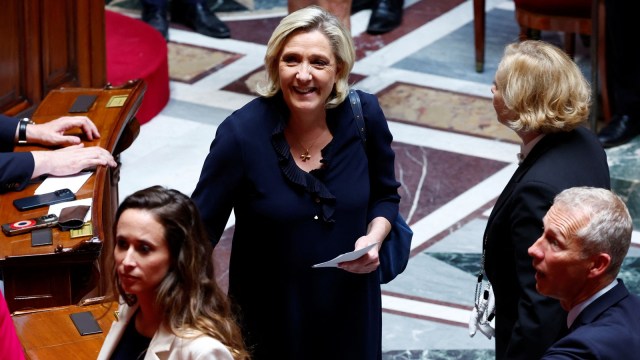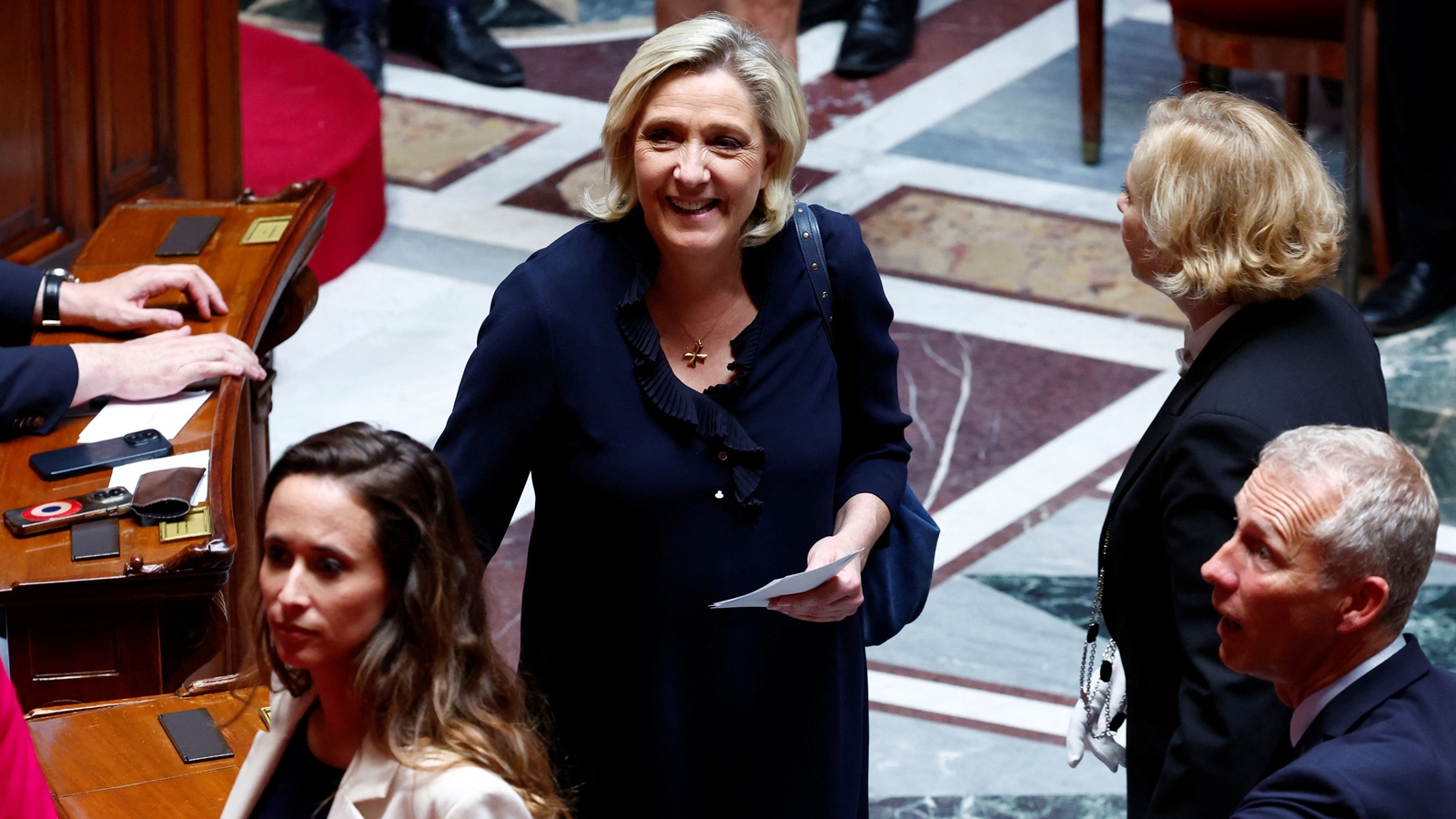
When French President Emmanuel Macron called for snap elections recently, he was christened a pyromaniac firefighter because he had tossed the country, without any constitutional or commonsensical need, into a huge fire whose only obvious consequence could be an unprecedented victory of the French far right. Nobody could figure out what Macron had in mind, but his decision seems to have been triggered by his frustration with a series of no-confidence motions against his Prime Minister who lacked the majority in the National Assembly to pass laws. He probably thought the elections would, at best, throw up a clear majority of sorts or, at worst, they would at least teach the far Left and the far Right, his principal troublemakers, a lesson or two by getting a good roasting in the conflagration.
Now that the elections are over, France has come out of the agnipariksha as confused as it was before it. The great French humourist Coluche once said: “If voting could change things, it would have been banned a long time ago”. Instead of a majority, several minorities have now cropped up, all below the majority mark of 289 seats in a house of 577. The Left-wing New Popular Front (comprising La France Insoumise, the Socialist Party and the Ecologists) leads with 182 seats, followed closely by Macron’s Centre-right group Ensemble (168 seats) and Marine Le Pen’s far-Right National Rally and allies (143 deputies). But it is important to understand how the Left and the Centre-right managed in the first place to reach these somewhat respectable figures when the far Right was widely tipped to win an outright majority. Faced with the inevitability of a National Rally win in France, which was perceived as a threat to French constitutional governance itself, the Left Front and the Centre-right came to a republican, or democratic, understanding where they would vote for each other. So in the final run-off, the Left voted for the Centre-right and vice versa, and, together, they managed to block a xenophobic, racist far-Right party from coming to power.
But, ironically, the hard truth revealed by these elections is that their loser is actually their only winner — the National Rally and its allies. With 143 deputies in the National Assembly, it is the single-largest party in the country – a grand first. In two years, its bench strength has shot up from 85 to 143 deputies and, compared to its earlier performances in this century, it has rocketed to this level from virtual non-existence in the National Assembly. In the recent elections, in as many as 25 per cent of the total number of constituencies in France, its candidates obtained more than 40 per cent of the vote share before bowing out to the Left-Centre right republican counter-offensive. If we look at the map of the recent French elections, it resembles aerial photographs of Indian monsoon floods, where cities big and small (in this case, Paris, Lyon, Lille…) look like floating islands in a sea of far-Right domination areas.
It has indeed been a meteoric rise for the National Rally.
When Marine Le Pen took over the presidency of the National Front in 2011, she realised that her father Jean-Marie Le Pen’s outrageously racist, vulgar and defiant public discourse had led to a demonisation of the party. The National Front was widely frowned upon and treated dismissively. In television debates, its spokespersons were more or less the laughingstock of viewers. This is where Marine Le Pen stepped in and argued that what her party urgently needed was legitimacy, respectability and mainstreamisation, something that would require a slow, brick-by-brick reshaping of their politico-ideological thinking along new lines.
Marine Le Pen began by distancing herself from her father’s radical far-Right invective. Jean-Marie Le Pen was suspended from the party, thus allowing his daughter a free hand to lead the party affairs. She replaced her father’s macho discourse with her own soft-spoken feminine presence – firm, but soft. At first, she did not seem to have a clear blueprint for her party but she made clever use of personal judgment and intuition, ringing in changes as she learnt from experience on the battlefield.
She renamed the party: The demonised National Front was replaced by National Rally (Rassemblement National, literally, a grouping together of the country’s citizens.) She brought in a new youthful cadre, presentable young men and women who were necessarily not from popular and working-class backgrounds, the traditional “catchment area” of the former National Front. Helped by the anger provoked by the Islamic groups-backed terror attacks in France and the arrival of new waves of immigrés from the Middle East, she expanded her outreach to areas beyond the traditional far-Right nests, wherever anger, frustration, hopelessness and economic deprivation prevailed, and its people needed a friendly listener. National Rally’s impressive performance in the recent elections and Marine Le Pen’s score of 13 million votes in the Presidential elections of 2022 are thus a direct result of these astute restructuring and “healing” actions.
Even now, confusion reigns supreme in France. The Left Front parties are squabbling to find a consensus Prime Ministerial candidate; Macron is trying to identify an alternative candidate from the Centre and the Republican Right. But whoever comes to power will have to confront the frightful reality that nearly 40 per cent of this country, raised on slogans of liberté, equalité and fraternité, has voted for a xenophobic, racist and anti-semitic National Rally. The new government and President Macron will have to win back the confidence of at least half of National Rally’s newly-formed base, which is nothing but young men and women gone astray in the wild winds of persistent social and economic crises. Far from practising a sectarian “untouchability” towards these free-floaters amongst the National Rally voters, the new government, particularly if it is from the Left, must lure them back, to a republican ghar vapsi through a human touch. If not, the writing on the wall is clear: The far-Right will soon be knocking on the doors of the presidential Elysée Palace.
Singh is a writer and a filmmaker
© The Indian Express Pvt Ltd
First uploaded on: 20-07-2024 at 16:17 IST



